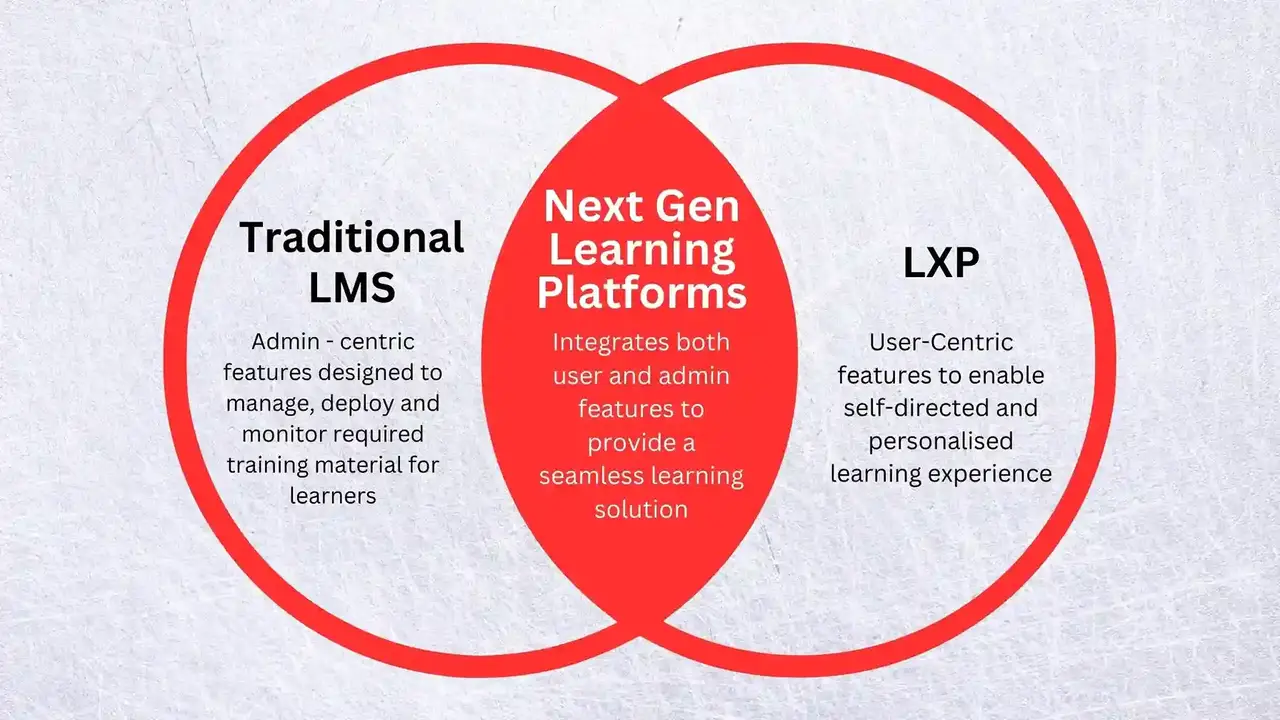Balancing Work Family and Online Studies Tips for Success
Learn effective strategies for balancing work, family, and online degree studies to achieve academic success.

Balancing Work Family and Online Studies Tips for Success
Hey there, future online degree superstar! So, you've decided to take the plunge into online education. That's awesome! Whether you're aiming for a bachelor's, master's, or even a doctorate, online degrees offer incredible flexibility and opportunities for career advancement. But let's be real, juggling work, family responsibilities, and rigorous academic demands isn't a walk in the park. It's more like a high-wire act with a dozen plates spinning simultaneously. Don't worry, though; you're not alone, and it's absolutely doable. This comprehensive guide is packed with practical tips, strategies, and even some tech recommendations to help you master the art of balancing it all, ensuring your academic success without sacrificing your personal life or professional commitments. We'll dive deep into time management, creating a supportive environment, leveraging technology, and maintaining your well-being, all crucial for students in the US and Southeast Asia.
Understanding the Unique Challenges of Online Learning for Busy Adults
Before we get into the nitty-gritty of solutions, let's acknowledge the beast we're tackling. Online learning, while flexible, demands a high degree of self-discipline, motivation, and organization. When you add work and family into the mix, the complexity multiplies. You're not just a student; you're also an employee, a parent, a spouse, a caregiver, and maybe even a community volunteer. Each role comes with its own set of demands and expectations. The lack of a fixed campus schedule, while a blessing, can also be a curse if not managed properly. There's no physical separation between 'school' and 'home,' which can lead to blurred lines and constant distractions. Plus, the social isolation that can sometimes accompany online learning can be a real challenge for some. Recognizing these hurdles is the first step toward overcoming them.
Mastering Time Management Strategies for Online Students
Time is your most precious commodity. Effective time management isn't about finding more hours in the day; it's about making the most of the hours you have. This is where strategic planning comes into play, especially for online degree students in the US and Southeast Asia.
The Power of a Detailed Schedule and Calendar Tools
Think of your schedule as your roadmap to success. Without it, you're driving blind. Start by blocking out all your non-negotiable commitments: work hours, family meals, kids' activities, and sleep. Then, strategically fit in your study blocks. Be realistic about how much time you can dedicate to each course. Don't just allocate a vague 'study time'; specify which course you'll be working on and what tasks you'll accomplish. For example, instead of 'Study for 2 hours,' try 'Read Chapter 3 for Biology and complete discussion post.'
Digital calendars are your best friends here. They offer flexibility, reminders, and easy sharing with family members. Here are a few top recommendations:
- Google Calendar: Free, widely used, and integrates seamlessly with other Google services. You can create multiple calendars for different aspects of your life (work, family, school) and color-code them. Its reminder features are excellent for keeping you on track.
- Outlook Calendar: Great for those already integrated into the Microsoft ecosystem. Offers robust scheduling, meeting invites, and integration with email.
- Fantastical (macOS/iOS): A premium option known for its natural language input and beautiful interface. If you're an Apple user, this can significantly streamline your scheduling.
- Todoist: While primarily a task manager, its integration with calendars makes it a powerful tool for scheduling study blocks and project deadlines.
Prioritization Techniques for Academic Success
Not all tasks are created equal. You'll inevitably face a mountain of assignments, readings, and projects. Learning to prioritize is key to avoiding overwhelm. The Eisenhower Matrix is a fantastic tool for this:
- Urgent and Important: Do these first. These are typically deadlines looming or critical tasks.
- Important but Not Urgent: Schedule these. This is where most of your proactive study time should fall – reading ahead, working on projects, preparing for exams.
- Urgent but Not Important: Delegate or minimize. These are often interruptions or tasks that can be handled quickly or by someone else.
- Not Urgent and Not Important: Eliminate. These are time-wasters.
Another useful technique is the 'Eat the Frog' method, popularized by Brian Tracy. Tackle your most challenging or dreaded task first thing in your study session. Once that's done, the rest of your day feels much lighter.
Breaking Down Large Tasks into Manageable Chunks
A 10-page research paper can feel daunting. A 50-page textbook chapter can seem impossible. The trick is to break these behemoths into smaller, bite-sized pieces. Instead of 'Write research paper,' think 'Outline paper,' 'Research sources for section 1,' 'Write introduction,' 'Edit paragraph 1.' This makes tasks less intimidating and allows you to make consistent progress, even if you only have 30 minutes to spare.
Creating a Dedicated and Productive Study Environment
Your physical environment plays a huge role in your ability to focus and retain information. Since you're studying online, your 'campus' is often your home. Making that space conducive to learning is paramount for online degree students in the US and Southeast Asia.
Designing Your Ideal Study Space
Ideally, you should have a dedicated area solely for studying. This could be a spare room, a corner of your bedroom, or even a specific spot at the kitchen table that's designated as your 'study zone.' The key is consistency. When you enter this space, your brain should automatically switch into 'study mode.'
- Minimize distractions: Keep it tidy. Clutter can be mentally distracting.
- Good lighting: Natural light is best, but if that's not possible, invest in a good desk lamp to prevent eye strain.
- Comfortable but not too comfortable: A supportive chair is essential. Avoid studying in bed, as it blurs the lines between rest and work.
- Essential supplies: Keep all your books, notebooks, pens, chargers, and any other necessary tools within reach to avoid breaking your flow.
Minimizing Digital and Environmental Distractions
This is a big one. Your phone, social media, email notifications – they're all vying for your attention. Here's how to fight back:
- Turn off notifications: Put your phone on silent or 'Do Not Disturb' mode. Better yet, put it in another room.
- Website blockers: Tools like Freedom, Cold Turkey, or even browser extensions can block distracting websites during your study sessions.
- Noise-canceling headphones: If your home environment is noisy (kids, pets, roommates), these can be a lifesaver.
- Communicate with family: Let your family know your study schedule and ask for uninterrupted time. A 'Do Not Disturb' sign on your door can work wonders.
Leveraging Technology for Enhanced Online Learning
Technology isn't just a distraction; it's also your greatest ally in online learning. From productivity apps to communication tools, the right tech can make a world of difference for online degree students in the US and Southeast Asia.
Essential Productivity Apps and Software
Beyond calendars, several apps can boost your efficiency:
- Note-taking apps:
- Evernote: Excellent for organizing notes, web clippings, and documents. Syncs across devices.
- OneNote: Microsoft's powerful note-taking tool, great for integrating with other Office products and free.
- Notion: A versatile workspace for notes, tasks, wikis, and databases. Highly customizable.
- Focus apps:
- Forest: A gamified app that helps you stay focused by growing a virtual tree. If you leave the app, your tree dies.
- Pomodoro Timers: Many apps and websites offer Pomodoro timers (25 minutes of work, 5 minutes break). This technique is incredibly effective for maintaining focus.
- Cloud storage:
- Google Drive/Dropbox/OneDrive: Essential for backing up your work and accessing it from any device. Never lose an assignment again!
Communication Tools for Online Collaboration
Online learning often involves group projects and discussions. Effective communication is vital.
- Zoom/Google Meet/Microsoft Teams: For virtual meetings with classmates or instructors. Familiarize yourself with these platforms.
- Slack/Discord: Great for informal group chats and quick communication with project teams.
- Email: Still the primary formal communication channel with instructors and university administration.
Learning Management Systems LMS Navigation
Your university will likely use an LMS like Canvas, Blackboard, Moodle, or Brightspace. Become intimately familiar with it. Know where to find assignments, grades, discussion forums, and course materials. Set up notifications so you don't miss important announcements.
Building a Strong Support System
You don't have to do this alone. A strong support system is crucial for navigating the challenges of online education, especially for online degree students in the US and Southeast Asia.
Communicating with Family and Friends
Open and honest communication with your family is paramount. Explain your goals, your schedule, and why this degree is important to you. Ask for their understanding and support. Involve them in your journey. Perhaps your kids can help you organize your study space, or your partner can take on extra chores during your peak study times. Celebrate small victories together.
Connecting with Fellow Online Students
While online learning can sometimes feel isolating, you're part of a community. Reach out to classmates! Form study groups, create a WhatsApp or Discord chat for your course, or connect on LinkedIn. These connections can provide emotional support, academic help, and valuable networking opportunities. Many online programs facilitate these connections through discussion boards or virtual meet-ups.
Utilizing University Resources
Your university wants you to succeed. They offer a wealth of resources, even for online students:
- Academic advisors: For guidance on course selection, degree requirements, and academic planning.
- Writing centers: Often offer online tutoring and feedback on essays and papers.
- Technical support: For any issues with the LMS or other university software.
- Counseling services: Many universities offer virtual counseling for stress, anxiety, or other mental health concerns. Don't hesitate to use these if you're feeling overwhelmed.
- Library services: Online access to databases, journals, and research assistance.
Prioritizing Self-Care and Well-Being
This is not a luxury; it's a necessity. Burning out helps no one. Maintaining your physical and mental health is critical for sustained academic performance and overall happiness, especially for online degree students in the US and Southeast Asia.
Scheduling Breaks and Downtime
Your brain isn't designed to work non-stop. Schedule regular breaks throughout your study sessions. Get up, stretch, grab a snack, or step outside for a few minutes. Also, ensure you have dedicated downtime each week where you completely disconnect from school and work. This could be a hobby, spending time with family, or simply relaxing.
The Importance of Sleep Nutrition and Exercise
- Sleep: Aim for 7-9 hours of quality sleep. It's when your brain consolidates memories and recharges. Pulling all-nighters is counterproductive in the long run.
- Nutrition: Fuel your body and brain with healthy, balanced meals. Avoid excessive caffeine and sugary snacks, which can lead to energy crashes.
- Exercise: Even 30 minutes of moderate exercise a few times a week can significantly reduce stress, improve mood, and boost cognitive function.
Mindfulness and Stress Reduction Techniques
When things get overwhelming, having tools to manage stress is invaluable.
- Mindfulness meditation: Apps like Calm or Headspace offer guided meditations that can help you stay present and reduce anxiety.
- Deep breathing exercises: Simple techniques can quickly calm your nervous system.
- Journaling: Writing down your thoughts and feelings can be a great way to process stress and gain perspective.
Practical Scenarios and Solutions for Online Degree Students
Let's look at some common challenges and how to tackle them, keeping in mind the diverse experiences of online degree students in the US and Southeast Asia.
Scenario 1 The Unexpected Work Deadline
You've got a major assignment due for your online course, and suddenly your boss drops an urgent project with a tight deadline. Panic sets in.
- Solution: First, assess the impact. Can you delegate any work tasks? Can you communicate with your professor about a potential extension for your academic assignment? Most online instructors are understanding if you communicate proactively and have a valid reason. Prioritize based on immediate impact and long-term consequences. Use your calendar to shift study blocks, even if it means waking up earlier or staying up a bit later for a few days.
Scenario 2 Family Emergencies or Illness
A child gets sick, or a family member needs unexpected care. Your carefully planned schedule goes out the window.
- Solution: This is where your support system comes in. Lean on your partner, other family members, or friends for help with childcare or other responsibilities. Again, communicate with your instructors immediately. Most universities have policies for extenuating circumstances. Focus on what's most important in the moment, and don't beat yourself up for falling behind temporarily. You can catch up.
Scenario 3 Feeling Overwhelmed and Unmotivated
You're halfway through the semester, and the sheer volume of work feels crushing. You've lost your spark.
- Solution: Take a step back. Revisit your 'why' – why did you start this degree in the first place? Remind yourself of your long-term goals. Break down your tasks even further. Reward yourself for small accomplishments. Connect with a classmate or your academic advisor to share your feelings. Sometimes just talking it out helps. Consider taking a short, guilt-free break to recharge.
Maintaining Momentum and Celebrating Milestones
The journey to an online degree is a marathon, not a sprint. It's essential to maintain momentum and acknowledge your progress along the way.
Regularly Reviewing Your Goals and Progress
Periodically check in with your academic plan. Are you on track? Do you need to adjust your schedule? Seeing how far you've come can be incredibly motivating. Keep a running list of completed assignments and courses.
Rewarding Yourself for Achievements
Don't wait until graduation to celebrate! Finish a tough project? Treat yourself to your favorite coffee. Aced a midterm? Enjoy a movie night with your family. These small rewards reinforce positive study habits and keep your spirits high.
Looking Ahead to Your Career Goals
Always keep your eye on the prize. Remind yourself how this online degree will open doors, enhance your career, and improve your life. Visualize yourself achieving those goals. This future-oriented mindset can be a powerful motivator when the going gets tough.
Balancing work, family, and online studies is a significant undertaking, but with the right strategies, tools, and mindset, it's an incredibly rewarding one. You're investing in yourself and your future, and that's something to be proud of. Keep learning, keep growing, and keep balancing!
:max_bytes(150000):strip_icc()/277019-baked-pork-chops-with-cream-of-mushroom-soup-DDMFS-beauty-4x3-BG-7505-5762b731cf30447d9cbbbbbf387beafa.jpg)






